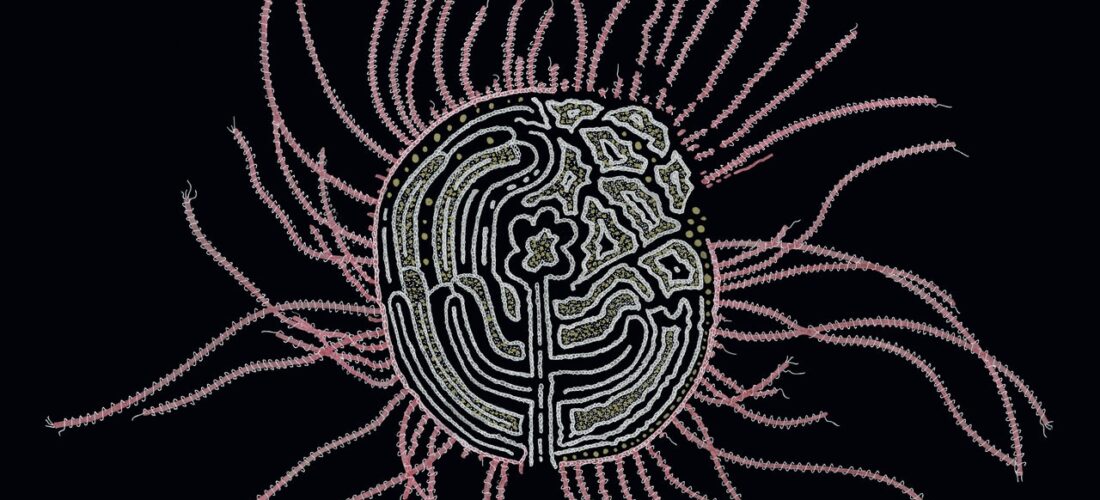Ka Baird entered 2022 feeling adrift. The two years of lockdowns and shutdowns had been difficult for the artist, whose practice—an improvisatory fusion of wordless vocalizations, movement, and crackling electronics—is deeply dependent upon the intimacy of live performance. At Chicago’s Lampo foundation, they developed a new solo piece, Bearings, to be performed 10 times over the course of two nights that spring, for an audience of between one and four people. Pacing the stage, deploying disorienting shifts in lighting and sound design, alternating between bursts of flute and ghostly hissing and chattering, Baird hoped to trigger a mixture of confusion and catharsis—the kind of soul-cleansing experience that might mark a new beginning, helping artist and audience alike get their bearings in a world turned strange. Then, just weeks before the show was to launch, Baird’s mother experienced an unexpected decline in health; the diagnosis was terminal.
Baird went ahead with Bearings—the final performance punctuated, serendipitously, by a fireworks display visible through the venue’s windows. After the shows, they decamped to Decatur, Illinois, where, alongside their brother, they spent the next six months caring for their mother. While she slept, Baird worked on music. On September 1, Karen Faye Lepp Baird died at the age of 79 in her children’s arms, taking her last breath as the sun set. The loss inspired Baird to become an end-of-life doula and also gave shape to their new album Bearings: Soundtracks for the Bardos, helping to channel the purifying intensity of the Lampo performances into an unpredictable, electric form. Baird’s music has often resembled a metaphorical transmission from another realm. With Bearings, they press forward into the rift.
The album’s organizing principle is the bardo, which Tibetan Buddhism conceives as a portal, such as those traversed by the dying on their passage from life to rebirth. “We are always in a bardo,” writes Baird in the album’s liner notes, “because impermanence never takes a break.” The titling of the album’s 11 tracks, from “Gate I” to “Gate XI,” suggests a succession of doorways, yet Bearings feels less like a collection of discrete pieces than a perpetually unfolding chain of events—a single stream of energy, writhing and twisting and forever taking on new shapes.
The album begins with a low, grinding hum haloed by overtones and bristling with fizz, and it ends with a similar drone pitched exactly one interval higher—as though the idea of ascension were coded directly into the music’s frequencies. In between those bookends, Baird utilizes many of the same techniques that distinguished 2019’s Respires. Their voice sounds more animal than human—hissing, groaning, growling, croaking. Electronic signals pulse in waves, like anxious dial tones; atonal blasts of flute buffet long, flat expanses of wordless singing, like gusts of wind smacking against plate glass windows. The occasional peal of trumpet or plucked viola serve as one of a handful of recurring motifs, like signposts along the soul’s journey. The force that holds it all together is the tension between flowing and stopping—an uneasy give-and-take punctuated by percussive flurries and sudden moments of silence. The only lyrics are a repeated refrain of “Here, disappear, poof,” yet even these words are indistinguishable from a magician’s smoke grenade, just bursts of breath dissipating against the buzz.
